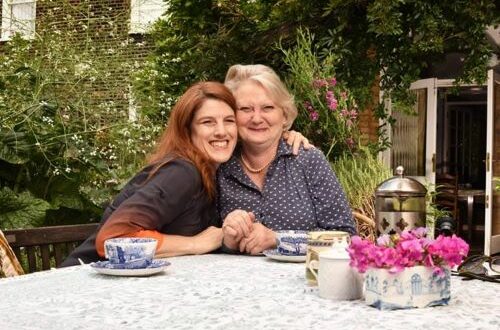The Books that Matter Most-Top picks for gifts
For those who love to read and think, here’s my yearly short list of books for Christmas gifts and adventures in learning. Over the past year we’ve interviewed many of these authors on our program, The Things That Matter Most.
For those who love to read and think, here’s my yearly short list of books for Christmas gifts and adventures in learning. Over the past year we’ve interviewed many of these authors on our program, The Things That Matter Most. You are welcome to download the author interview from our website to a CD and include it with the book—a special touch to pique the recipient’s interest in the book you chose just for him or her! (Instructions provided on how to save to your computer so you can burn a CD)
Knowing Christ Today by Dallas Willard helps the reader understand why we can trust spiritual knowledge. In our interview (May 24 & 31, 2009) with Dallas we discussed a longitudinal study of Harvard sophomores undertaken to discover what makes a person happy or successful. As professor of philosophy at USC, Dallas concurs with the findings: Relationships bring the most happiness. But Dallas points out that not just any relationships make us happy. Good relationships are the key. Then the question becomes, How do we nurture good relationships? Who is a good person? Who has the best information on something so vital to human flourishing? Willard makes a strong case that Jesus has the best knowledge on the subject and that, while knowing Christ and learning from him is a different kind of knowledge than knowing physics, we can be as certain of spiritual knowledge as we can of scientific or historical knowledge.
In Sacred Pathways Gary Thomas exhorts his readers, "Thou shalt not covet thy neighbor’s spiritual walk." How we process our life with God has much to do with the way God made us. I’m an extrovert and process things by talking them out. Introverts go deeply into their own inner world to process. I am a strongly intuitive person, gathering information through facts but also Art and Philosophy. Story and metaphor. Others are more sensing, gleaning information from concrete data—direct experience of what they see, hear, taste and touch. When it comes to how we make decisions, some of us, like me, are more thinkers. Others make decisions based more on their feelings. Somehow these opposites usually wind up marrying each other and coveting or misunderstanding the others’ approach to knowledge of God! Whether you are trying to understand your own pathway or someone’s else’s it helpful to realize that different is not better or worse. Just different: God made Naturalists, Contemplatives, Care-givers, Intellectuals—Thomas describes nine distinct spiritual temperaments, both their strengths and pitfalls. Very helpful for giving grace and understanding to others in your family, church or small group who have a differently spiritual pathway.
If your pathway includes wonder and learning my co-author, Kelly Monroe Kullberg, and I invite you to read A Faith and Culture Devotional. These short daily readings in Theology, History, Philosophy, Science, Literature, Art, and Contemporary Culture will refresh your education and renew your wonder for God at his creative, redemptive work…"marvelous in our eyes." You’ll enjoy readings by Dallas Willard, Darrell Bock, Sandra Glahn, Ray Bohlin, Michael Behe, Francis Collins, John Eldredge, Phillip Yancy, Os Guinness and many more of our favorite Christian authors, artists, scientists and thought leaders.
One of the things Jack and I learned at a ministry retreat this fall was how, in the current cultural shift from modern to postmodern, some personality traits favored during modern times are less favored by postmoderns and vice versa. In Meyers/Briggs speak the declining modern personality was extroverted, sensate, thinking and judging (loves assigning value, bringing closure). The ascending postmodern cultural sensibility is more introverted, intuitive, feeling and perceiving (open-ended, non-judging, whatever). Two new books help us understand that shift in sensibility and how to do ministry in ways that meet spiritual needs in a culturally sensitive way:
UnChristian by David Kinnaman and Gabe Lyons describes what a new generation thinks of Christianity and why it matters. For the most part, the Barna group’s research shows that outsiders’ perception of the Christian "brand" is not good news: Christians are perceived as hypocritical, sheltered, judgmental and wanting to sell the message rather than understand the outsider. In our interview (July 19, 2009) David Kinnamon doesn’t just unpack the postmodern cultural sensibility, but shares his own journey of how to connect the heart of the gospel to the hearts of outsiders without cultural accommodation that diminishes either.
Many older Christians and more traditional churches see how some emergent churches are trying to reach outsiders with the gospel and, with a broad stroke, condemn them all for their cultural accommodation. In Deep Church Jim Belcher helps us understand the different strands of emergent churches, their seven criticisms of traditional churches and offers a third way of ministry. A church innovator who began a twenty-something ministry in the eighties at Lake Avenue Church in Pasadena, CA, Jim gradually began to see the weaknesses of creating a "church within a church"—younger people who lived unconnected to families and older people, never benefiting from their wisdom nor growing to love and serve them. Although friends with many who started emergent churches, Jim founded Redeemer Presbyterian Church in Newport Beach, CA. Deep Church offers an in-depth critique of Brian McLaren and other emergent leaders, showing their differences with real appreciation of their strengths but also challenging what he believes are weaknesses. Jim offers suggestions for ways to deepen worship, become more missional to outsiders and yet provide unapologetic teaching of God’s word and Biblical leadership. He recommends beginning with prayer and a more missional focus in your own small group.
Donald Miller, author of Blue Like Jazz, released a new book this year that may well appeal to outsiders, Emergents and Traditionals alike, especially those who enjoy learning through story and metaphor. A Million Miles in a Thousand Years tells what happens when two guys decide to make a movie out of Miller’s life. As Miller helps them write the screenplay he realizes that his life is not very meaningful. It lacks challenge. Conflict. Deeper family relationships. Miller’s commitment to write a more meaningful story with his life misses some opportunities to share the gospel and a vision of what objectively constitutes a truly meaningful life, but otherwise is a great read—very inspiring for anyone wanting to write a more meaningful story into each day.
Honorable mention:
John Piper: What Jesus Demands From the World and Suffering and the Sovereignty of God, written in the context of his own diagnosis of prostate cancer. Deeply encouraging.
Ravi Zacharias: New Birth or Rebirth? Jesus Talks with Krishna. In our interview (August 10, 2008) Ravi discusses Hinduism and responds to clips from our interview with Deepak Chopra. Ravi has a series of books written as conversations with believers of other religions and worldviews. Very Accessible. (Also The Lotus and the Cross: Jesus Talks with Buddha, Sense and Sensuality: Jesus Talks with Oscar Wilde on the Pursuit of Pleasure)
Stephen Meyer: Signature in the Cell. One of Amazon and NYT top Science books this year. Deals with evidence of God’s design in the information in the cell. In our interview (August 23, 2009) Stephen acquaints the reader with some of the newest evidence for intelligent design.
The Darwin Myth by Ben Wiker and Saving Darwin by Karl Giberson. Our Point/Counterpoint interview with both authors (Sept 13, 2009) provided a fascinating contrast between Wiker, who believes in Intelligent Design, and Giberson who believes in theistic evolution.



3 Comments
Megan S
Thanks, Lael!
Thanks for the list, Lael! I just added several of them to my wishlish 🙂 Love, Megan
LoriS
Thanks again, friend!
Thanks again, friend!
Sandra Glahn
Good stuff
I thoroughly enjoyed reading your list. Very interesting. Thank you!